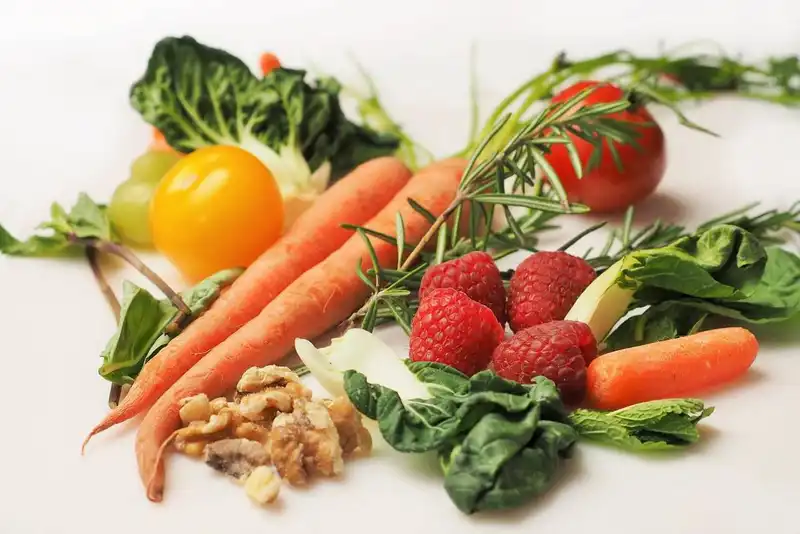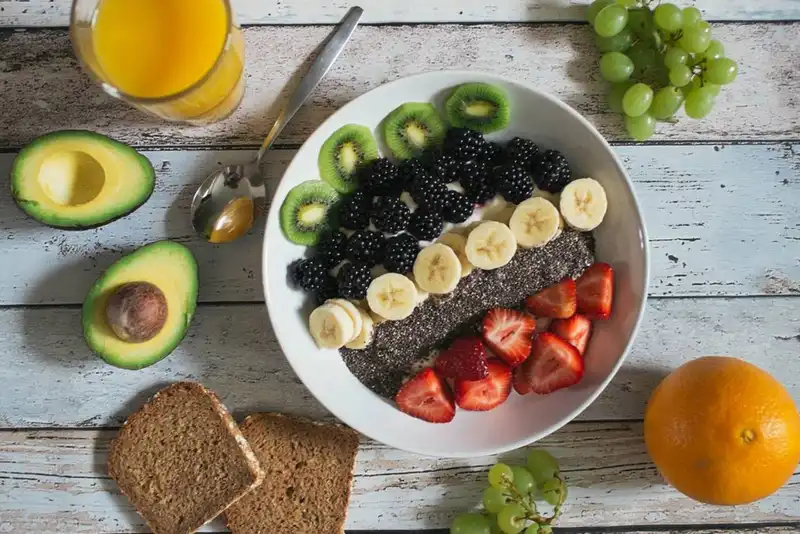What is high quality food?
Food quality is related to its safety, sustainability, and nutritional value. High quality foods have a good flavor, aroma, appearance, and texture. A high quality food is one that has been produced under sanitary conditions, with the right ingredients, and with minimal processing. It is also one that has been carefully selected and produced with the right techniques. When buying food, we need to think about not just the taste and appearance, but also the safety, sustainability, and nutritional value of the food we are buying.
The Importance of High Quality Food And Why You Should Eat Them
What does high quality food mean?

Food quality refers to the sum of all attributes of a particular meal that is acceptable to consumers. These qualitative values could include texture, appearance, size, consistency, as well as nutritional content. Typically, food that is unrefined, minimally processed and aesthetically-pleasing is considered to be of high quality. This includes fruits, vegetables, lean meats, healthy fats and whole grains.
Why high quality food matters?

Incorporating high-quality food into your diet is extremely important. Minimally processed real food is nutrient dense and leaves us satiated. It performs the primary function of food, which is to nourish our bodies with the right nutrients. It has several health benefits and even helps individuals forge healthy eating habits. Proper nutrition enables us to lead healthier lives, dodge food-related diseases and is even proven to better our mental health. These are only some of the reasons why high quality food matters and why it should be incorporated in daily diets. We will discuss the benefits of a diet rich in high quality foods later in this article. Keep reading!
The foods you eat can have an impact on your health and energy levels
The Importance of High Quality Food And Why You Should Eat Them is a blog that helps people understand the importance of eating high quality food and what it means for their health
How to get high quality food in your diet

We all know the long list of foods that are healthy for us. The ones that provide us with good carbohydrates and fibre, are rich in antioxidants and minerals and loaded with vitamins! But making smarter food choices isn't always easy. So how can you incorporate high-quality foods into your diet? Here are some practical tips that will help you eat better-
Eat high fibre carbohydrates- Starchy carbohydrates such as potatoes, whole grain bread, brown rice or whole wheat pasta should constitute a little more than a third of the food you eat. Try including at least one fibre-rich carbohydrate in every meal.
Eat more fish- Fish is an excellent source of protein, fatty acids, vitamins and minerals. Try and get your fish from a good source, as canned or smoked fish can be high in salt.
Reduce salt intake- Eating too much salt can increase your blood pressure, which in turn can lead to heart disease. Reducing the amount of salt in your food is therefore extremely important and will invariably lead you to make better food choices. It should also be noted that your salt intake could exceed permissible limits even if you do not add salt to your food, as many pre-packaged foods such as breakfast cereals, bread, sauces, and soups are already well-seasoned. Eschewing these foods for farm-bought ingredients will help you and your family get healthier.
Eat more fruits and vegetables- The importance of eating fruits and vegetables cannot be stressed enough. They are loaded with vitamins minerals. If you have difficulty increasing the number of fruits and vegetables you eat, try and incorporate them into your favorite recipes. Your breakfast cereal bowl could do with a chopped up banana. Or, your mid-day snack could be replaced with fruit.
What happens when you eat high quality food?

There are many advantages to eating high quality foods, which we will discuss in detail further in this article. However, it must be emphasized that a well-balanced diet of high quality foods provides us with the energy to stay active through the day, along with nutrients that support the growth and repair of the body. It also helps with our sleeping patterns and mental health, and protects us from diet-related illnesses such as diabetes, obesity, heart disease and cancer.
Good quality food versus bad quality food

High quality foods can be distinguished from low or bad quality foods on the basis of their nutritional value. High quality foods, evidently, would be foods that are nutrient dense. They promote healthy living and strengthen the body to fight disease. Furthermore, they not only lead to weight loss but can even help us maintain our weight. Low or bad quality foods, in contrast, are unhealthy and include junk and fast foods. They are high in fat, sugar and calories, and lead to weight gain as well as increase the body's propensity to fall prey to diseases.
Eating high quality food is important for many reasons, but it can be hard to find the time to cook
Eating high quality food doesn’t have to be difficult or time consuming. With the help of a few simple ingredients, you can make your own high quality food right in your kitchen!
Benefits of high quality foods
There are various benefits, apart from the ones we have already covered, of eating high quality foods. Studies state that food quality plays a major role in determining the nutrition you draw from your meals. High-quality foods may help you live longer, improve your skin, teeth, and eyes, boost immunity, strengthen bones, support healthy pregnancies and breastfeeding, aid the functioning of the digestive system, and support brain development. In addition to these, high-quality foods also help us adapt to better lifestyle patterns by keeping our weight in check, helping with sleep, and improving our mood.
Having said this, it is extremely important to follow Food Safety protocols even when preparing or consuming high-quality foods. The FDA provides the Food Safety protocols that should be followed by domestic as well as commercial kitchens.
Tips for choosing high quality food
While its easy to promote healthy eating, introducing major changes to your diet can be both overwhelming and difficult to sustain. We urge you to start with smaller changes to see better results. Here are some tips that can help you make better food choices-
Choose whole wheat bread instead of bread made with refined flour.
Add probiotics such as fermented foods to your diet. Yoghurt is an easy ingredient to incorporate in your daily diet.
Make a list of the food you want to pick up and stick to it! Making the right choice while standing in the baked goods isle can be difficult!
Try at least one healthy recipe that uses high quality foods every week. This will ensure that you buy the right products and eat better.
Cook at home more often.
Choose popcorn over chips, and baked potatoes over french fries!
Pick healthy oils such as coconut, avocado or extra virgin olive oil.
These tips are simple to follow, easy to incorporate into your daily routine and will surely promote healthy eating habits!
You’ve been feeling tired, sluggish and just not like yourself lately. You can’t pinpoint the cause, but you know it has to be something you’re eating
Eating high quality food is important for your health and well-being. Make sure you are eating foods with a low glycemic index and fat for optimal energy levels
